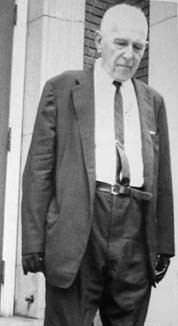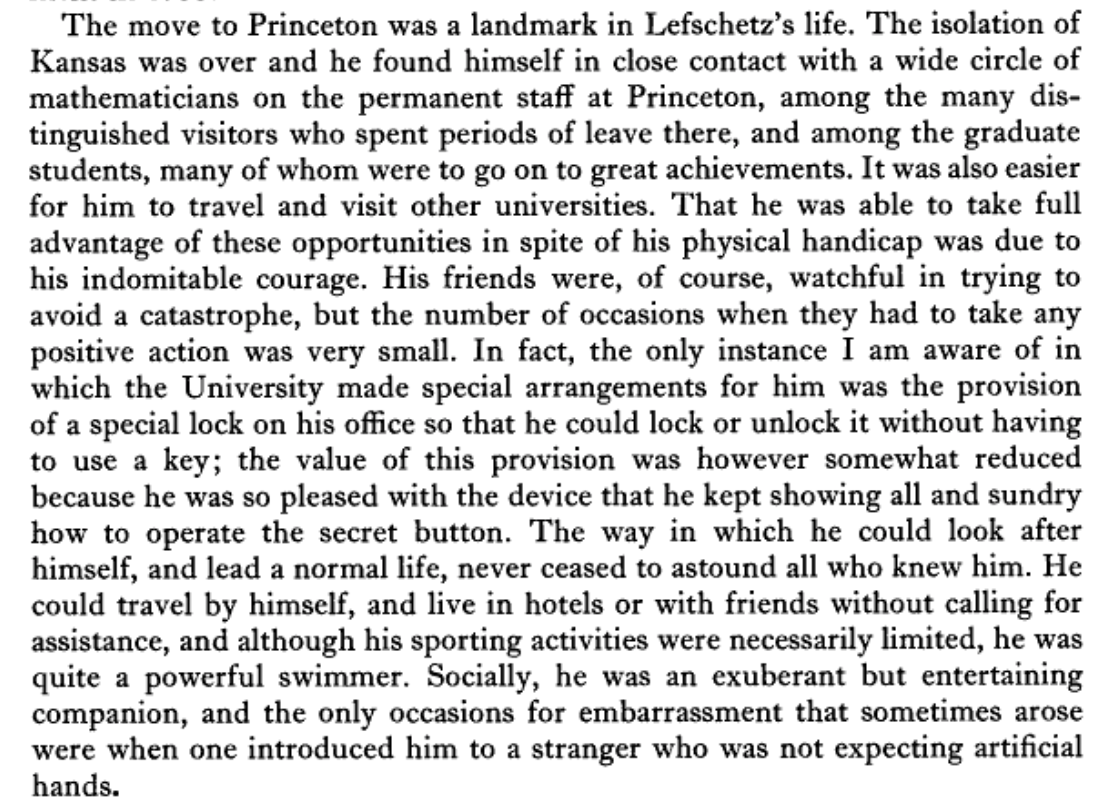If people think this is the wrong forum for this question, I'll cheerfully take it elsewhere.
But: How did Solomon Lefschetz do mathematics with no hands?
Presumably there was an amanuensis to whom he dictated his papers, and then dictated his revisions. Does history record that person's identity? Was it someone trained in mathematics? Someone we might have heard of independently? Or maybe a series of graduate students?
And what about the research phase, when most of us make a lot of idle notes, come back, revisit, cross things out, etc. Was Lefschetz also dictating all these idle thoughts to someone --- or did he learn to hold them in his mind until he was ready to write a paper? Or something else?
Or did he have some sort of prosthetics that allowed him to write?
I expect there are people alive --- and perhaps active on this site --- who were at Princeton during the time Lefschetz was active, or who have had direct contact with such people. Maybe one of them can answer?
Edited to add: If anybody is tempted to answer that "he used a Lefschetz Pencil, of course!", I've just pre-empted you.


